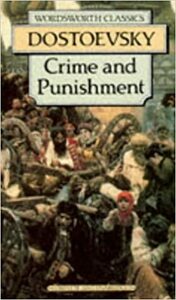Take a photo of a barcode or cover
An almost perfect novel.
[One star deducted for the cart horse. I'm still not over it.]
[One star deducted for the cart horse. I'm still not over it.]
challenging
dark
emotional
inspiring
reflective
sad
slow-paced
Plot or Character Driven:
Character
Strong character development:
Complicated
Loveable characters:
Complicated
Diverse cast of characters:
Yes
Flaws of characters a main focus:
Yes
challenging
dark
emotional
mysterious
reflective
sad
slow-paced
Plot or Character Driven:
A mix
Strong character development:
Yes
Loveable characters:
Complicated
Diverse cast of characters:
Yes
Flaws of characters a main focus:
Yes
dark
emotional
mysterious
tense
medium-paced
Plot or Character Driven:
Character
Strong character development:
Yes
Loveable characters:
Complicated
Diverse cast of characters:
No
Flaws of characters a main focus:
Yes
Graphic: Animal cruelty, Murder
Moderate: Alcoholism, Misogyny
Minor: Pedophilia
A masterpiece, grasped me at its every stage and flowed originally yet so naturally
Dostoyevsky writes dialogue utterly enigmatically, with such an energy which carries every facet of his rambling philosophical toil embodied through the frictional interaction of its characters, connected like a nervous system in the city of his novel. Each person is defined by their environment, every person; worn down by poverty, stiffened by gentrification, ignorant to their determinism and struggling to speak a new word; Raskolnikov stands among them as the main vessel for such a journey, and he is foiled and covered in every which way by everyone he ever interacts with
I’m not fully sold on every way the book goes about its themes admittedly. I feel Dostoevsky places too much importance on the necessity of suffering for example, perhaps offers too much lenience to the justice system in the interest of prioritising the messaging towards the perseverance of the individual. That being said, that theme does indeed land very well, and at plenty other points he shows quite sufficient commentary on the malformed nature of his society. He’s also not nearly as bad with women as other works from his time and before can be, thought not perfect either. I do think he goes a bit far with what he does with Lebezyatikov in that regard though
Dostoyevsky writes dialogue utterly enigmatically, with such an energy which carries every facet of his rambling philosophical toil embodied through the frictional interaction of its characters, connected like a nervous system in the city of his novel. Each person is defined by their environment, every person; worn down by poverty, stiffened by gentrification, ignorant to their determinism and struggling to speak a new word; Raskolnikov stands among them as the main vessel for such a journey, and he is foiled and covered in every which way by everyone he ever interacts with
I’m not fully sold on every way the book goes about its themes admittedly. I feel Dostoevsky places too much importance on the necessity of suffering for example, perhaps offers too much lenience to the justice system in the interest of prioritising the messaging towards the perseverance of the individual. That being said, that theme does indeed land very well, and at plenty other points he shows quite sufficient commentary on the malformed nature of his society. He’s also not nearly as bad with women as other works from his time and before can be, thought not perfect either. I do think he goes a bit far with what he does with Lebezyatikov in that regard though
challenging
dark
mysterious
sad
tense
slow-paced
Plot or Character Driven:
Character
Strong character development:
Yes
Loveable characters:
Complicated
Diverse cast of characters:
No
Flaws of characters a main focus:
Yes
Good plot! However, it was way too long. There was sometimes too much going on in the book; some parts could have been shorter, but I loved analyzing the story and the complex characters. I felt like the epilogue was unnecessary, and the book should’ve just ended at part 6.



